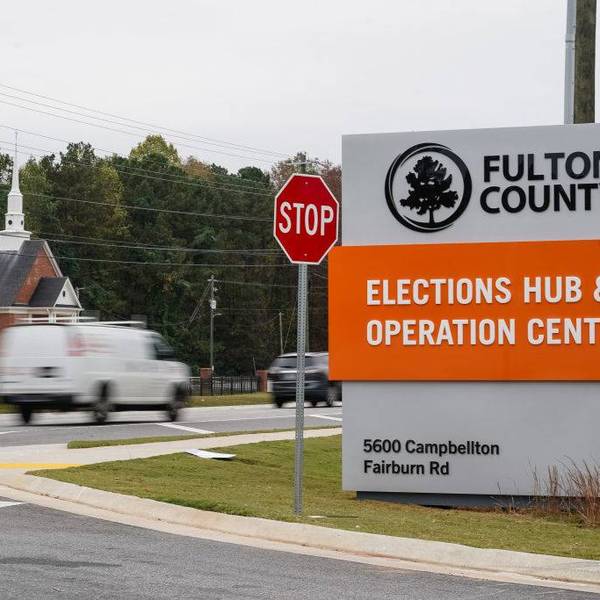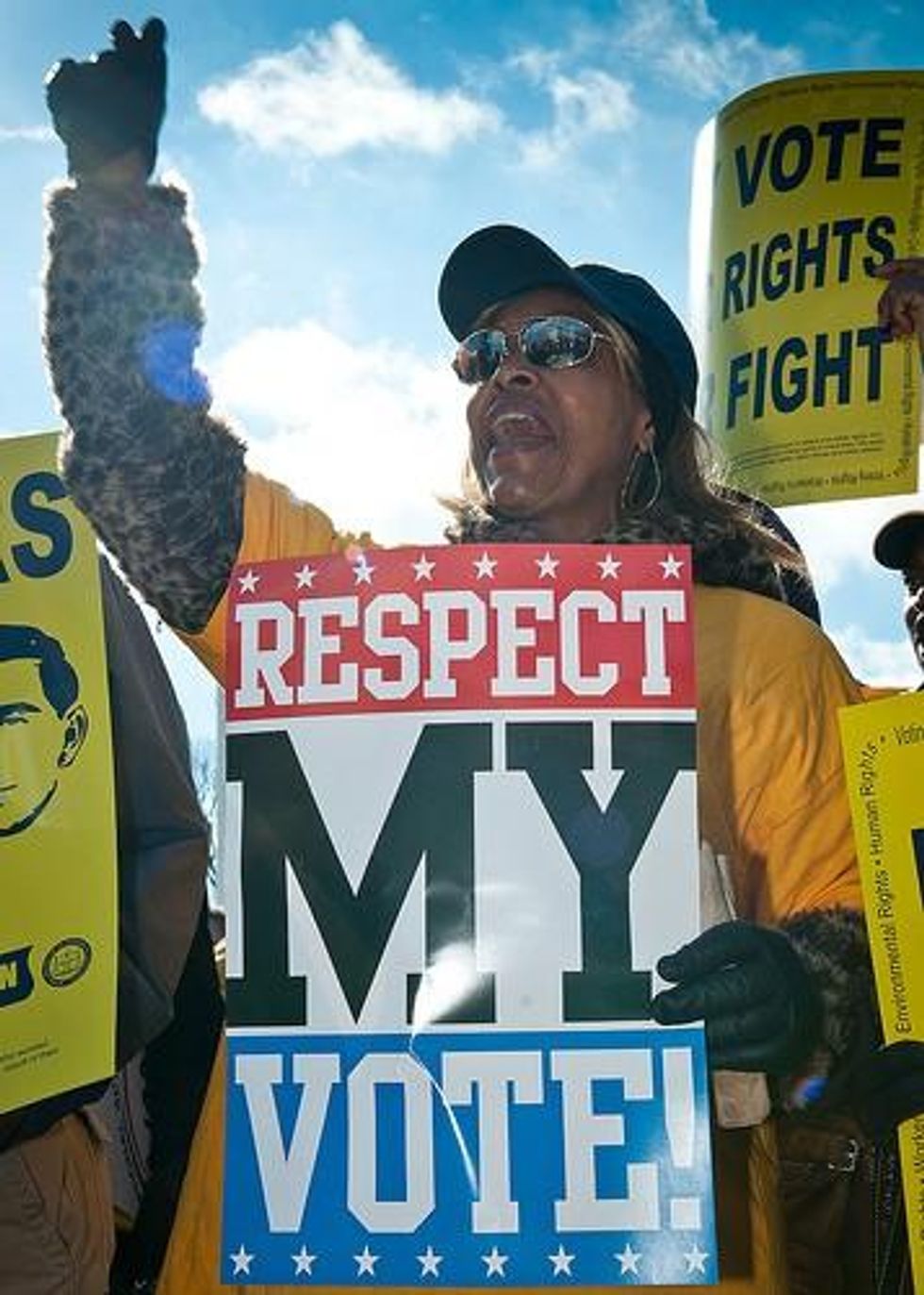The US Department of Justice issued the first challenge to voter suppression attempts Thursday since the Supreme Court's recent dissolution of a key provision in the 1965 Voting Rights Act.
In a speech before the National Urban League in Philadelphia, Attorney General Eric Holder announced that as a "first move," the DOJ is asking a federal court to require the state of
Texas to "obtain advance approval before putting in place future political redistricting or other voting changes,"
AP reports.
Last month, the Supreme court voted 5-4 in a ruling against Section 4 of the VRA, which determined the states and localities required to get such federal approval based on those locations having a history of racial discrimination. Previous to the ruling, nine states--of which Texas was one--and parts of seven others were required to obtain the approval.
According to the ruling, Congress is technically able to pass a new bill based on contemporary data for determining which states should be covered. Though, as SCOTUSblog noted at the time, with the staunchly partisan gridlock in our current legislature, this "will be exceptionally difficult politically."
While Congress considers their updates, Holder announced Thursday, the DOJ plans to "fully utilize the law's remaining sections to ensure that the voting rights of all American citizens are protected."
In order to reestablish pre-approval for the state of Texas, the federal court must determine proof of intentional discrimination against voters. If found, the pre-approval requirement would apply for 10 years.
In Texas, there is a history of "pervasive voting-related discrimination against racial minorities," Holder declared, referencing an earlier ruling by a Washington, D.C. federal court which found that Texas lawmakers intentionally discriminated against minorities when drawing redistricting maps and that the state's voter ID law would disenfranchise minority voters.
"This is the department's first action to protect voting rights following the [Supreme Court] decision, but it will not be our last," the attorney general added.
The DOJ action comes as a number of states previously subject to preclearance have already rushed to introduce suppressive voting legislation.
Late last week, North Carolina's Senate Republicans added a slew of amendments to a voter ID bill which critics are calling a "poll tax in disguise." If passed, the bill will require all voters to present state-approved forms of ID, restrict early voting, stop same-day registration, and ban state supported voter registration drives--leaving North Carolina with the strictest voter ID law in the US.
The state of Florida is also proceeding with a controversial initiative to screen for "suspected" non-citizens and purge them from voter rolls.
_____________________




